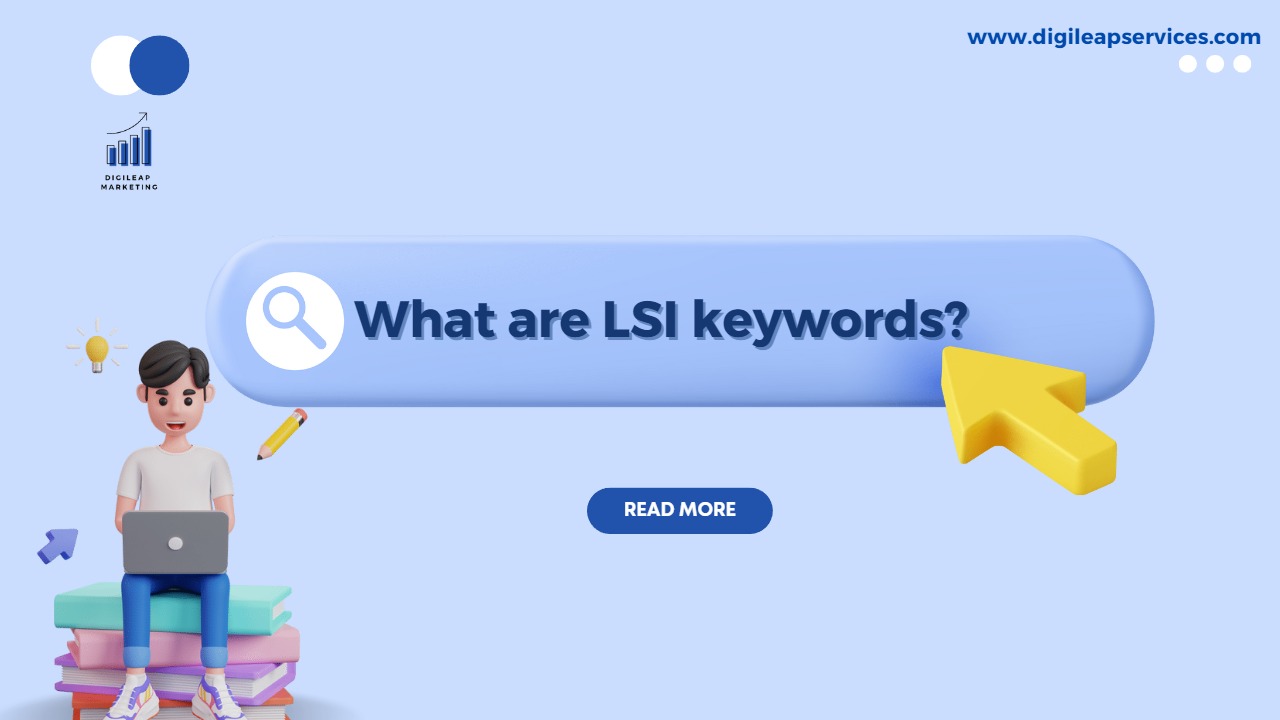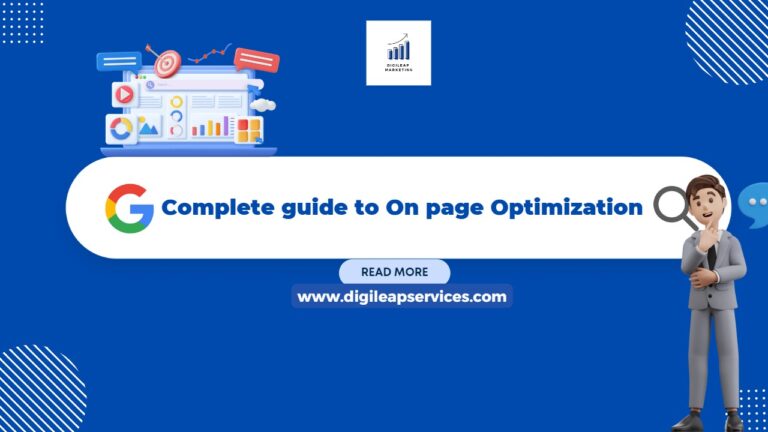What are LSI Keywords?
Latent Semantic Indexing, or LSI, keywords are controversial in the SEO world. It’s easy to become confused about what they are and if they genuinely help your website rank higher on Google.
There is no disputing that there are many misunderstandings concerning them and the claims made about them.
We wish to clear up any misconceptions and help you understand what LSI keywords are and why they are important.
LSI Keywords have been a contentious subject in recent years. Business owners, marketers, and SEO professionals are always on the hunt for Google ranking variables to guarantee that their content ranks high on Google.
Latent Semantic Indexing (LSI)
Latent Semantic Indexing (LSI), also known as Latent Semantic Analysis (LSA), is a natural-language processing approach invented in the 1980s.
Unfortunately, the technology is difficult to grasp unless you’re familiar with mathematical topics such as eigenvalues, vectors, and single-value decomposition.
As a result, we will not be discussing how LSI works. Instead, we’ll concentrate on the problem it was designed to answer. This is how the LSI designers characterize the problem.
The terms searcher use are not always the same as those used to index the material sought.
But what exactly does this mean?
Assume you want to know when summer ends and fall begins. Because your WiFi was off, you get old school and take an encyclopedia. Instead of flipping through thousands of pages, you search for “autumn.”
That’s not the sort of fall you were hoping to learn about.
Not one to give up easily, you return your gaze and discover that what you’re seeking is indexed under “autumn”— another term for fall.
The issue here is that “fall” is a synonym as well as a polysemic word.
How Important Are LSI And LSI Keywords?
Google claims to have indexed hundreds of billions of online pages. How do you suppose Google determines which of these billions of possible pages to display you when you put something into its search engine?
The first idea that comes to mind is that after receiving your query, search engines scan for pages that contain matching phrases to the ones you used and choose those pages.
For example, if you key in “pancakes,” you may expect search engines to return results containing the word you typed in (“pancakes”), right?
Although that appears to be the clearest way, it can be quite wrong. Because many words have several meanings (polysemy), matching literal phrases risks delivering very irrelevant sites to a search user.
Furthermore, because multiple words might signify the same thing (synonymy), matching specific phrases significantly restricts a search engine’s results to its customers. Matching literal phrases to a search user’s query is, therefore, inadequate and erroneous.
A better, more natural method would be to retrieve material based on a topic’s conceptual significance, which is what LSI attempts to do.
It accomplishes this by attempting to discover the underlying (Capabilities) link between words (Conceptual) to enhance information retrieval (Tagging).
Read: How to Increase Blog Traffic with Easy Keyword Analysis
What Problem Do LSI Keywords Address?
Finally, Google’s objective has always been the same; to find the best website to match a search user’s query. To do so, Google must first grasp what a search user means when they use the search engine to seek a word. However, because of the richness of the language construct, Google has several obstacles in achieving this.
When search users utilize polysemic terms and synonyms in their inquiries, this presents a hurdle.
For example, how does Google know if I’m looking for today’s date, a romantic meeting with someone, or the fruit if I key in the term “date”?
This is what we call polysemic words: words with several meanings.
Are LSI Keywords a Google Ranking Factor?
A few years ago, it was widely assumed that Google used latent semantic indexing in its search algorithm and that utilizing LSI keywords in your content may increase its ranking in search results.
It is reasonable to suppose that Google employs LSI in their search algorithm since it is critical for them to be able to differentiate polysemic terms and synonyms to accurately discern their searcher’s intent.
However, in 2019, Google’s Search Advocate, John Mueller, shattered the myth by revealing that Google does not employ LSI keywords in their search engine.
Furthermore, unlike whitepapers from other search engines, Google’s publications on their search algorithm included no mention of latent semantic indexing or latent semantic analysis.
So, the question resurfaces: “Are LSI Keywords one of Google’s ranking factors?”
What is the genuine answer? None of us will be aware (only Google knows)
The most likely response? No. But also, in some ways yes.
To truly address this, we must look at the history of Natural Language Processing, or NLP.
NLP in its most basic form is the process of teaching computers to interpret human language.
LSI is similar to a gasoline engine in that it is no longer the most expensive, but it still accomplishes the function of providing context for your content and moving it up the SERP rankings.
Read: To know more about the Role of Content in SEO and Marketing. Click here.
How to Discover LSI Keywords (Contextual Terms)
You may wonder how you find these Contextual Terms to include in your writing.
There are three options.
You might start by doing it manually. You may search Google for a specific term of interest and go through the Top 10 sites one by one.
Following that, you must extract terms and phrases used by those sites that are semantically and contextually connected to your chosen keyword.
Remember that the frequency with which these keywords are used will help you determine which ones are the most popular to include in your material.
This method is appropriate, but it may be time-consuming and difficult, and you may miss out on certain keywords.
Another method is to use Google’s NLP API, which provides an interface that demonstrates how search engines perceive and evaluate the quality of the text. You would need to provide the API with a piece of content (ideally from the Top 10) and it would then use machine learning to categorize the material into four categories:
- Entities classify certain words or phrases such as place, consumer item, person, event, price, and more.
- Sentiment: Sentiment evaluates the sentiment of the information to determine if it is favorable, negative, or neutral.
- Syntax: Syntax studies the language structure of the material and gives linguistic insights.
- Categories: This displays the overarching category in which the material falls.
Following that, you would need to gather this information into a spreadsheet and decide on the keywords related to your niche that Google considers significant based on each of the four categories.
Because Google’s NLP API is a sophisticated tool, there is a high learning curve, and you would need to spend days examining the data offered by the API.
The third and simplest option is to employ an SEO keyword research tool such as LSIGraph. You would simply need to enter a seed keyword, which would then return a list of contextual phrases you could use in your content to increase relevance. The best part about his procedure is that it takes less than a minute! You can save time and effort by letting LSIGraph handle everything for you.
Is Contextual SEO Effective?
Promising something works isn’t nearly as persuasive as demonstrating that it works.
So, to address the issue of whether contextual phrases truly assist in increasing the SEO of a piece of content.
Let’s look at some statistics. We launched a new keyword research page on LSIGraph three months ago. In case you didn’t know, the term “keyword research” is quite competitive.
It has the most keyword difficulty and a relatively low opportunity score (OS). This indicates that without precise optimization, ranking for this keyword and seeing any traffic would be exceedingly impossible.
The term “keyword research” has a keyword difficulty of 100 and an Opportunity Score of 32, as shown in this LSIGraph screenshot. The high keyword difficulty in keyword research.
Of course, because we know LSIGraph works, we optimized the website using our tool to help it rank higher.
Conclusion
Although LSI keywords do not exist, semantically similar words, phrases, and entities do, and they have the potential to improve ranks.
Make sure to utilize them when they make sense rather than sprinkling them wherever and whenever.
Do you have any questions concerning the LSI keywords? Let us know in the comments!
DigiLeap Marketing Services Pvt Ltd is a marketing services company based in India. Contact us right away at www.digileapservices.com.












